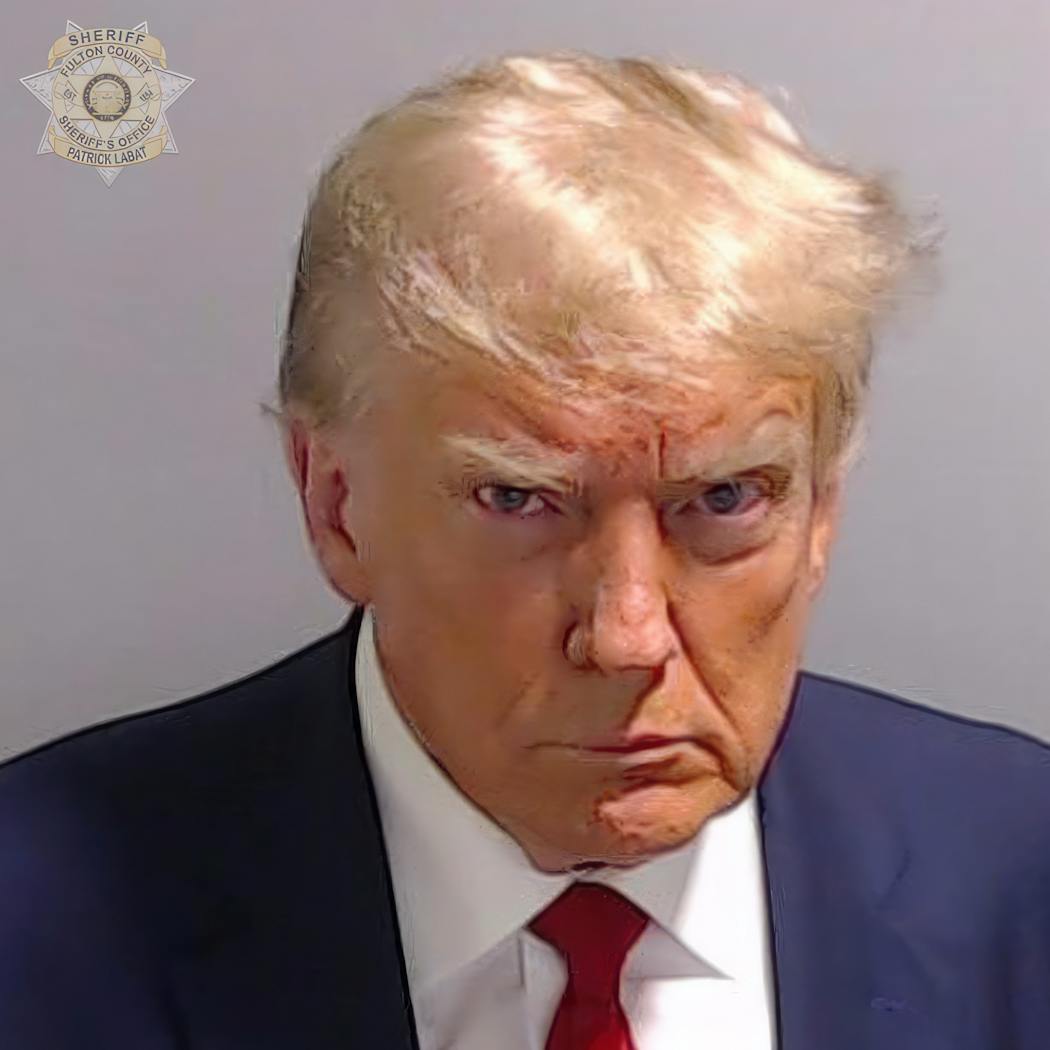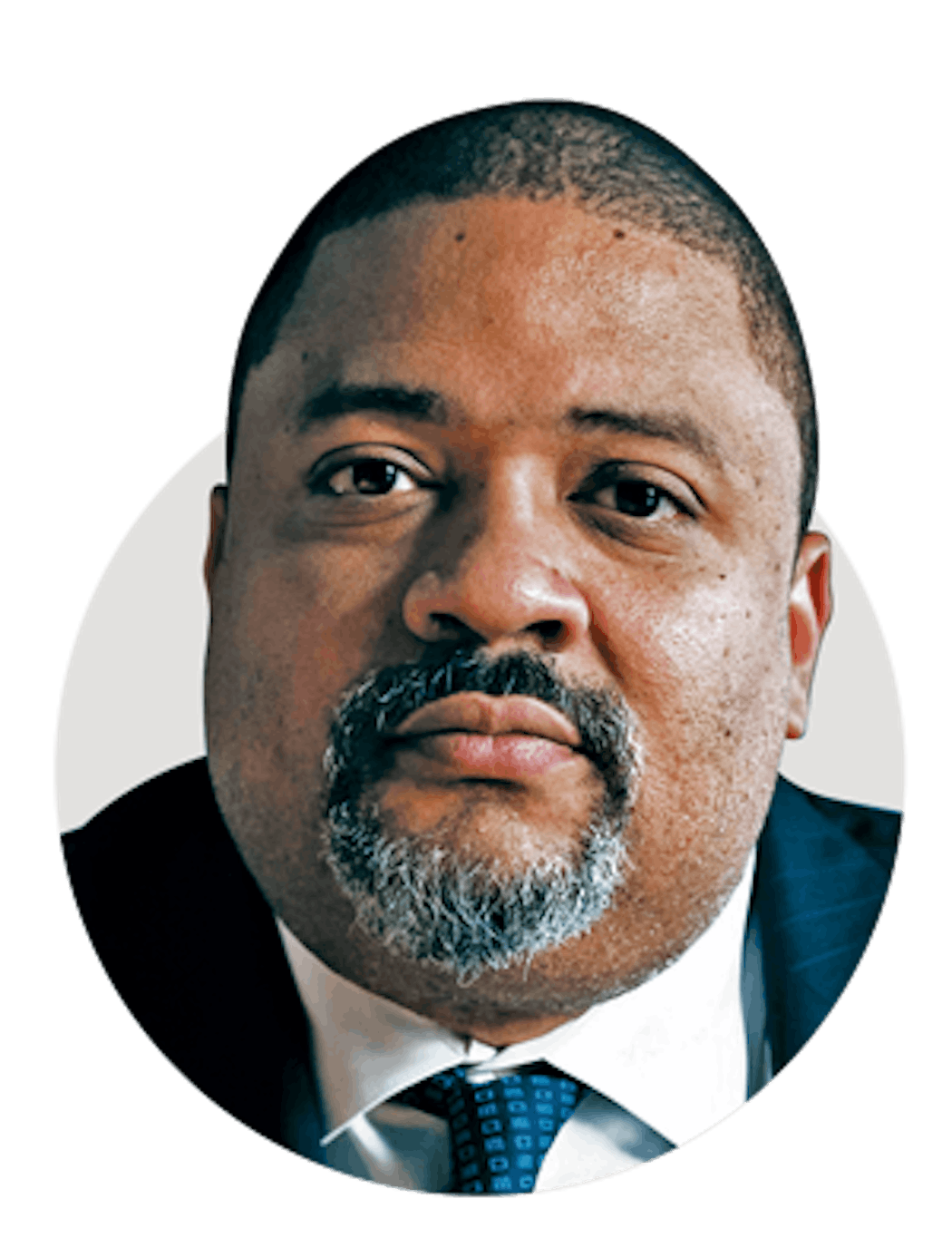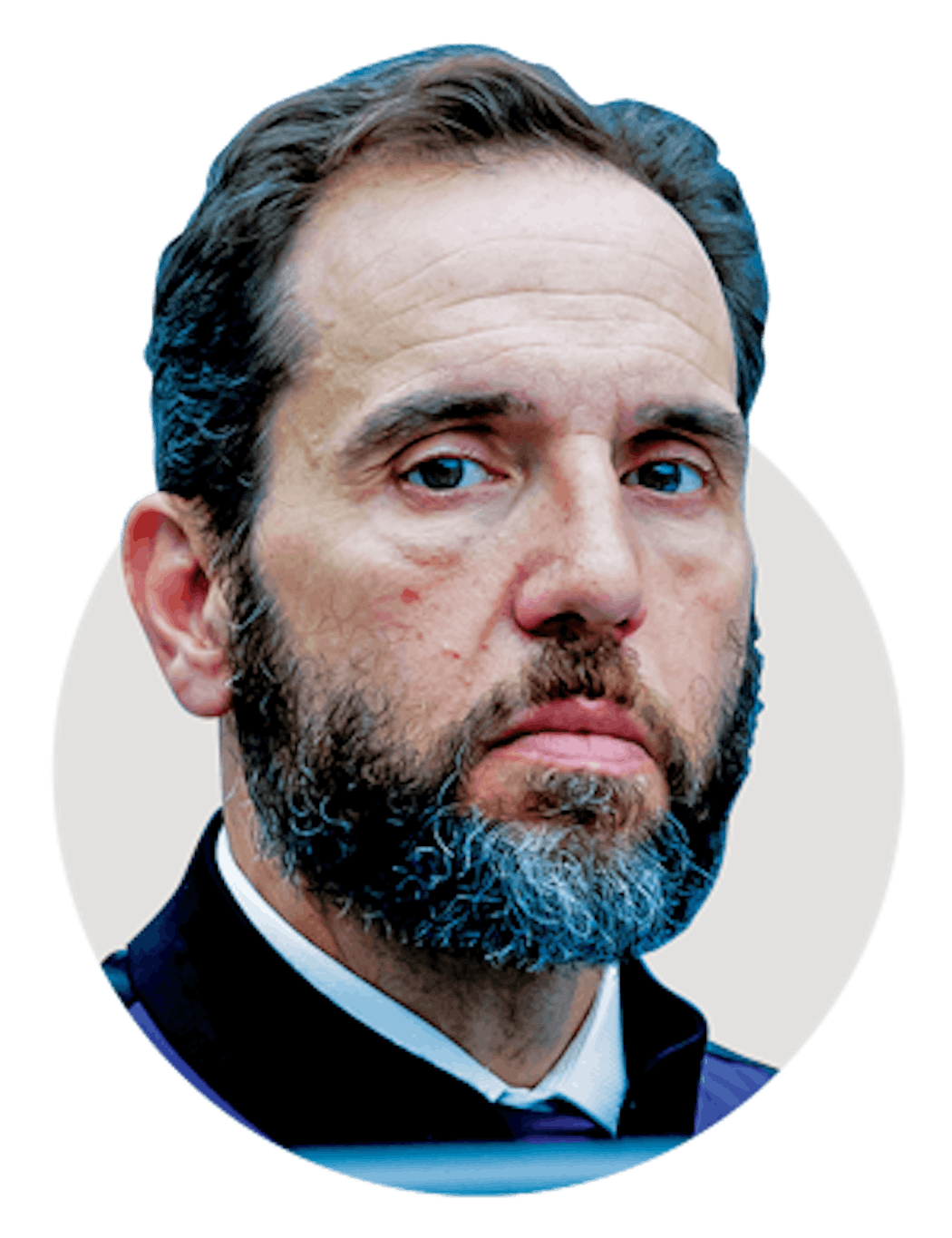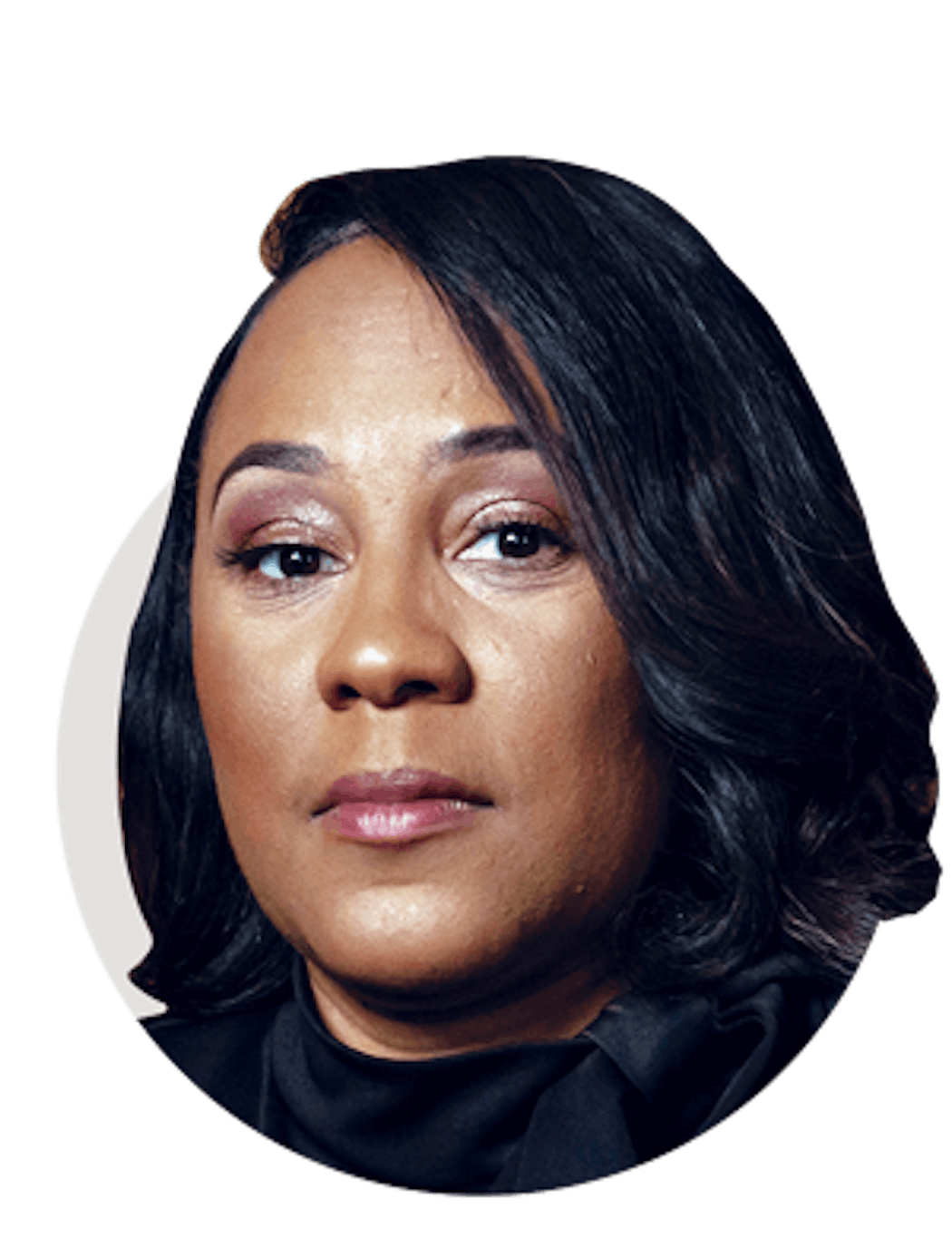Trump's ongoing legal woes
Charges, courts and campaign
Trump has been juggling his presidential campaign along with court appearances. His defense teams have used a strategy of stalling each trial through motions that take time to sort out, sometimes enlisting each layer of the appeal process. Trump's defense has tried to turn this crowded calendar to their advantage: Citing schedule conflicts can cause further delays. The hush-money case has been least affected by this strategy and has been delayed only a few weeks from its original trial date.
The first and only police booking mug shot of a former or current president was taken in August when Trump turned himself in at the Fulton County jail in Atlanta after his indictment alleging election interference in Georgia. Trump has not been subject to a booking photo for any other criminal case against him.
Hush-money coverup
Donald Trump is accused of falsifying business records in this New York case. The charges involve paying his former lawyer Michael Cohen for legal fees in 2017. The prosecution, led by Manhattan District Attorney Alvin Bragg, said these fees were reimbursements for hush-money payments to porn star Stormy Daniels during the 2016 presidential campaign. To make its case for charging falsifying business records as a felony, the prosecution must show that it was to cover up another crime. Bragg said the other crime is breaking election law by scheming to cover up payments.
Charges
Trump faces 34 charges of falsifying business records in the first degree. Eleven counts are related to fake invoices submitted by Cohen. Eleven are tied to checks written by Trump to reimburse Cohen. Twelve are linked to false Trump Organization ledger entries for reimbursements.
Prosecutor
"We're all supposed to be equal under the law," Alvin Bragg said when running for Manhattan district attorney. He was elected in 2021.
From the charges
7. During and in furtherance of his candidacy for President, the Defendant and others agreed to identify and suppress negative stories about him. Two parties to this agreement have admitted to committing illegal conduct in connection with the scheme. In August 2018, Lawyer A pleaded guilty to two federal crimes involving illegal campaign contributions, and subsequently served time in prison.
Bragg outlines the alleged scheme in a "statement of facts" filed with the charges. Cohen, or "Lawyer A," pleaded guilty to campaign-finance violations for payments during the 2016 presidential campaign to two women who say they had affairs with Trump. Cohen is expected to be a key witness in the trial.
What's next
The trial is set to begin Monday with jury selection, almost a year after Bragg indicted Trump. Names of the jurors will not be released to the public. Their names and addresses will be available to the lawyers in the case.
Handling classified documents
When Donald Trump left the White House on Jan. 20, 2021, the last day of his presidency, he had possession of sensitive government documents at Mar-a-Lago, his club in Florida. After attempts by the government to recover the documents, 15 boxes of materials were turned over to the National Archives. A Justice Department investigation ensued, including an FBI search of Mar-a-Lago, where 13,000 documents were recovered. Attorney General Merrick Garland appointed Jack Smith as special counsel to oversee this investigation and a separate probe into the insurrection on Jan. 6, 2021.
Charges
Trump faces 40 criminal counts, including 32 related to keeping documents containing national security secrets. Seven counts are related to Trump obstructing the investigation with his aide Walt Nauta. One count is related to making false statements during the investigation.
Prosecutor
Special counsel Jack Smith has been prosecuting criminal cases since 1990. He left the international court in The Hague to take this role.
From the charges
TRUMP, in sum and substance, made the following statements, among others, as memorialized by Trump Attorney 1:
a. I don't want anybody looking, I don't want anybody looking through my boxes, I really don't, I don't want you looking through my boxes.
b . Well what if we, what happens if we just don't respond at all or don't play ball with them?
Trump's lawyer Evan Corcoran recorded a detailed voice memo about his conversations with Trump. Smith fought to obtain that material, and a federal judge ruled in Smith's favor. In this excerpt, Corcoran and Trump discuss a subpoena issued by a grand jury to turn over all classified documents.
What's next
The trial is set to start May 20, but federal Judge Aileen Cannon said she's likely to delay it. Trump's lawyers have made several motions to dismiss the case, moves that lower the chances of a trial before the election.
Federal election interference
The case focuses on Donald Trump's attempts to change the results of the 2020 presidential election. The charges detail Trump trying to recruit a fake slate of electors in seven states and asking his vice president, Mike Pence, to alter results during the election vote certification on Jan. 6, 2021. Trump repeatedly encouraged his supporters to come that day to Washington, where he told them, "If you don't fight like hell, you're not going to have a country anymore," and urged them to march to the Capitol. The indictment says this breaks the law by trying to disrupt an official proceeding on Jan. 6.
Charges
The indictment charges Trump with four counts. One relates to a conspiracy to defraud the United States. Two relate to efforts to obstruct the vote certification on Jan. 6. The other charge is related to a conspiracy to violate civil rights of voters in certain states with close election results.
Prosecutor
Jack Smith has been leading both this case and the one involving Trump's handling of sensitive government documents at Mar-a-Lago.
From the charges
2. Despite having lost, the Defendant was determined to remain in power. So for more than two months following election day on November 3, 2020, the Defendant spread lies that there had been outcome-determinative fraud in the election and that he had actually won. These claims were false, and the Defendant knew that they were false. But the Defendant repeated and widely disseminated them anyway —
This excerpt asserts that Trump knew his statements about election fraud were false. The charges further reinforce this claim by citing several advisers telling him that his statements were untrue. Proving this claim is key for prosecutors to convince a jury that Trump was acting with corrupt intent.
What's next
The defense says the case should be thrown out because Trump should have presidential immunity from events that happened while he was in office. The Supreme Court is to hear oral arguments April 25 to decide this issue.
Georgia election interference
Donald Trump and his allies are charged with violating Georgia's Racketeer Influenced and Corrupt Organizations Act, or RICO. Fulton County District Attorney Fani Willis is using RICO, originally designed to prosecute mob bosses, to weave together how several co-conspirators "participate in a criminal enterprise." When the defendants tried to change the results of the 2020 presidential election in Georgia and other swing states, Willis alleges that they committed several crimes including false statements, forgery, impersonating a public official and soliciting public officials to violate their oaths.
Charges
The indictment named 19 people and listed 41 charges. Since the indictment, six charges have been dismissed and four co-defendants have pleaded guilty and now have to testify truthfully in any trial for this case. Trump faces 10 counts after three were dismissed by the judge.
Prosecutor
Fani Willis has led hundreds of murder cases over the last two decades. She was elected Fulton County district attorney in 2020.
From the charges
The enterprise constituted an ongoing organization whose members and associates functioned as a continuing unit for a common purpose of achieving the objectives of the enterprise. The enterprise operated in Fulton County, Georgia, elsewhere in the State of Georgia, in other states, including, but not limited to, Arizona, Michigan, Nevada, New Mexico, Pennsylvania, and Wisconsin, and in the District of Columbia.
The first count accuses all defendants of violating RICO and lays out a timeline of "overt acts." The RICO charge allows Willis to tell a broad narrative of events that happened in and out of Georgia. Many of the acts that happened in Georgia are relisted in the indictment as separate criminal charges.
What's next
The defense is appealing a decision by the judge that Willis could stay on the case if a lawyer whom she hired for the case and has a romantic relationship with stepped aside. The defense claims this relationship is a conflict of interest.
Other legal battles
Several states tried to remove Trump from the 2024 primary ballot by claiming the 14th Amendment prevented former officeholders who "engaged in insurrection" from holding office again. Minnesota's Supreme Court left Trump on the ballot ahead of a U.S. Supreme Court ruling that Trump can't be removed from any state's primary ballot. Other civil cases have dogged Trump recently:
Business fraud
Trump owes $454 million in penalties for fraudulently inflating his wealth to get better loan and insurance terms for his business, a judge ruled on Feb. 16, 2024. Trump has posted a $175 million bond while he appeals.
Carroll defamation
On Jan. 26, 2024, a jury ordered Trump to pay $83 million to E. Jean Carroll for defaming her after she accused him of raping her decades ago. This was the second time that Carroll has won a defamation lawsuit against Trump.
What if trump is convicted?
If Trump is convicted, he can still run for president. If he is convicted and then elected from prison, it would create a constitutional crisis. Courts could release him so he could fulfill his presidential duties, or the vice president and his cabinet could strip him of his authority under the 25th Amendment for inability to fulfill his duties. He also could try to pardon himself, but only for federal charges. All scenarios are legally untested.
Mounting legal fees
Trump has spent $100 million in legal fees since leaving office in 2021. He has relied almost completely on donations to pay these expenses, which is allowed under federal rules. With the criminal hush-money trial starting, legal costs are rising and the funds used to pay legal fees from donations are nearly drained. At the current spending rate, the account for legal fees is likely to be out of money by summer.
Sources: Associated Press, New York Times, Washington Post




